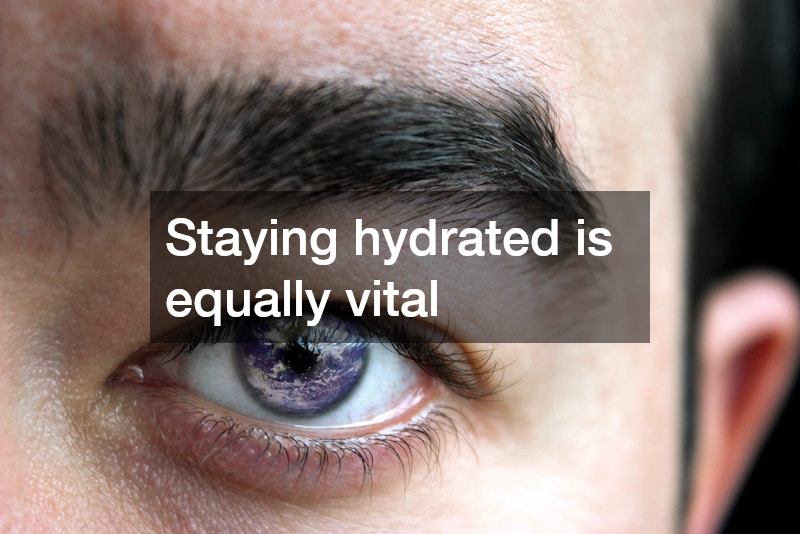This article provides essential tips and insights from eye Dr. professionals on how to maintain healthy vision throughout your life. Healthy vision is crucial at every stage of life, and with appropriate care and attention, one can significantly reduce the risk of vision problems as they age.
Taking proactive measures now can ensure healthy eyes for years to come.
Individuals often overlook the importance of eye care until problems arise. Therefore, it’s essential to be informed about best practices that promote eye health and ensure comprehensive care tailored to different age groups. By adopting these practices, one can maintain optimal vision and overall eye health.
What Are the Best Practices for Eye Health at Different Ages?
Several age-specific strategies exist to protect and promote eye health from childhood through senior years. For children, establishing regular eye check-ups ensures detection of any vision issues early on, which is vital for their academic success and developmental milestones. Consulting with an eye Dr. early can help identify and address issues before they affect learning and development. Teaching children the importance of eye safety, such as wearing protective eyewear during sports and limiting screen time, can set a foundation for future eye health.
As adolescents transition into adulthood, they face new challenges that can affect eye health, including increased screen time associated with education and work. Regular breaks using the 20-20-20 rule—looking at something 20 feet away for 20 seconds every 20 minutes—can significantly reduce eye strain and fatigue. Additionally, encouraging the use of digital glasses can protect against the harmful effects of blue light exposure from screens.
In older adults, the risk of eye diseases increases, making it essential to have comprehensive eye exams more frequently. Conditions like cataracts, glaucoma, and macular degeneration become more prevalent with age. Incorporating protective measures, such as wearing UV-blocking sunglasses and consuming a diet rich in antioxidants, can help mitigate the impact of these diseases and maintain eye health. Regular visits to an eye Dr. allow for early detection and treatment of age-related conditions, ultimately supporting long-term vision care.
How Does Nutrition Impact Eye Health?
A balanced diet, vitamins, and minerals are crucial for maintaining optimal vision. Nutritional choices significantly influence eye health, as specific nutrients play a vital role in preventing eye diseases. Vitamins A, C, and E, along with the minerals zinc and omega-3 fatty acids, contribute to maintaining healthy vision and protecting against degeneration. A diet rich in leafy greens, colorful fruits, and healthy fats can provide these essential nutrients.
Additionally, research indicates that antioxidants found in certain foods help combat oxidative stress in the eyes, which can lead to conditions like age-related macular degeneration. Consuming foods like carrots, sweet potatoes, and spinach can provide the necessary carotenoids, such as lutein and zeaxanthin, that help filter harmful blue light and enhance visual contrast. A balanced diet not only supports overall health but is particularly beneficial for maintaining clear vision.
Staying hydrated is equally vital as it contributes to overall eye moisture and health. Dehydration can lead to dry eyes, resulting in discomfort and blurred vision. Incorporating plenty of water along with food high in water content, like cucumbers and oranges, can support hydration and promote eye wellness. If you’re experiencing persistent dryness, your eye Dr. can recommend lubricating drops or investigate underlying causes.
What Eye Exercises and Habits Can Improve Vision?
There are several practical eye exercises and daily habits that can help enhance visual acuity and reduce eye strain. Simple eye exercises, such as eye rolling, focusing on distant objects, and blinking frequently, can help refresh and strengthen eye muscles. These exercises serve to alleviate tension built up from prolonged screen use and improve overall visual efficiency.
Another effective approach is maintaining proper posture and ergonomics while using digital devices. Ensure that the screen is at eye level and that the lighting is adequate to minimize glare. Establishing a comfortable working distance and utilizing artificial tears can also assist in reducing dryness and discomfort associated with prolonged screen time. Developing these healthy habits over time is essential for the longevity of vision quality.
Incorporating routine eye care into daily life can greatly improve overall eye health. Scheduling regular eye exams, practicing good hygiene by washing hands before touching the eyes, and ensuring adequate sleep are crucial habits that support visual well-being. Following the advice of your eye Dr. in these areas can make a measurable difference in long-term eye health. By fostering these healthy practices, individuals can create a conducive environment for their eyes to thrive and enhance their overall quality of life.
From childhood through old age, being mindful of eye health is imperative to prevent problems and maintain quality of life. The insights provided by eye care professionals emphasize that preventative measures, such as regular check-ups, nutrition, and good habits, are paramount to sustaining optimal vision.
Taking quick action on small, manageable changes to daily routines and lifestyles can yield considerable benefits in visual health. With guidance from your eye Dr., you can ensure those changes are both effective and tailored to your needs. Investing time and effort into maintaining eye health is a vital component of overall health, leading to a fuller, more vibrant life. With the right attitude and a proactive approach, achieving long-term eye wellness is within reach for everyone.

